Random, interesting studies
-
Magnesium Sulphate for "stuck bile" I cholestasis
"Taken together, the results of this study suggest that MgSO4 treatment may be beneficial in cholestasis-induced hepatotoxicity."
https://pubmed.ncbi.nlm.nih.gov/25967882/"Mg SO4 may increase bile secretion and relax the sphincter Of Oddi, resulting in emptying and consequently a reduction of Gallbladder volume"
https://journals.lww.com/ajg/fulltext/2004/10001/the_effect_of_magnesium_sulfate_on_the_human.140.aspxIt increases the discharge of bile
https://pubmed.ncbi.nlm.nih.gov/955499/i was thinking maybe topical application of magnesium sulfate to relax the sphincter of oddi muscle and to increase bile discharge.
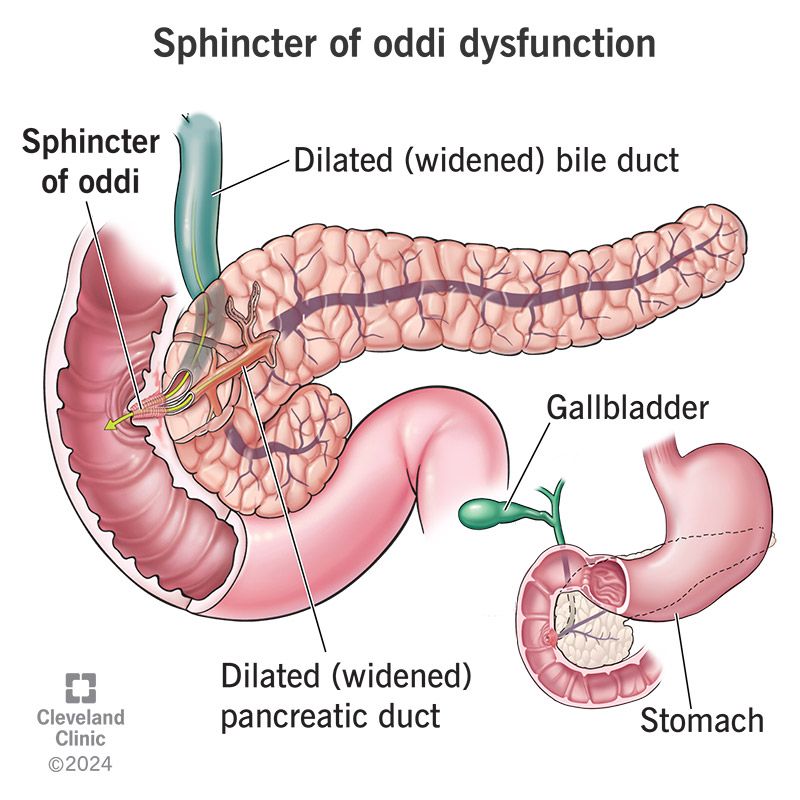
-
3,8-Dihydrodiligustilide
Strong phytoprogestogen.
https://en.m.wikipedia.org/wiki/3,8-DihydrodiligustilideIt has almost the same potency as progesterone (80% of it). And it has no estrogenic or anti-androgenic effects.
"EtOH extracts of the dried rhizome of L. chuanxiong demonstrated strongest
progestogenic activity, reaching 80% of that observed with progesterone (100 nM) and had an EC50 of 8 lg/ml (Fig. 1b). The bioactivity of L. chuanxiong extract was spe-
cific to the PR, and the extract was at least 200-fold less active on other related members of the steroid receptor family like androgen, estrogen and glucocorticoid receptors." -
EDIT: Bloodroot might bin very well to the progesterone receptor but not agonize it.
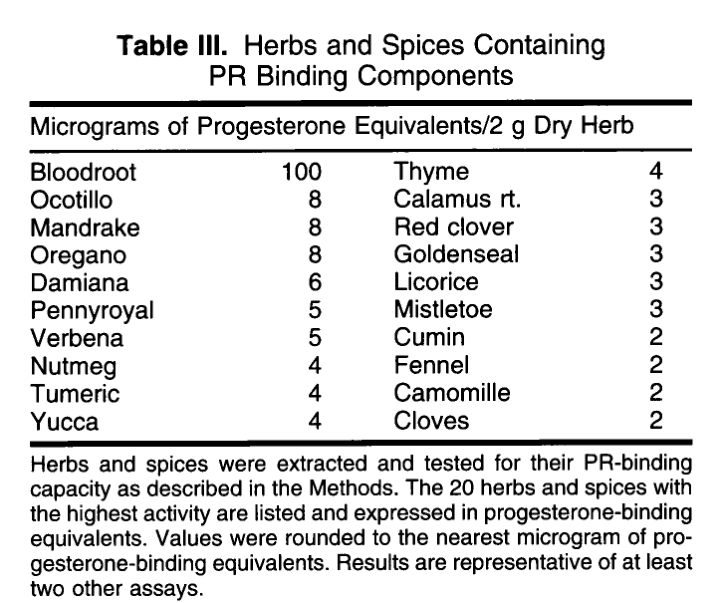
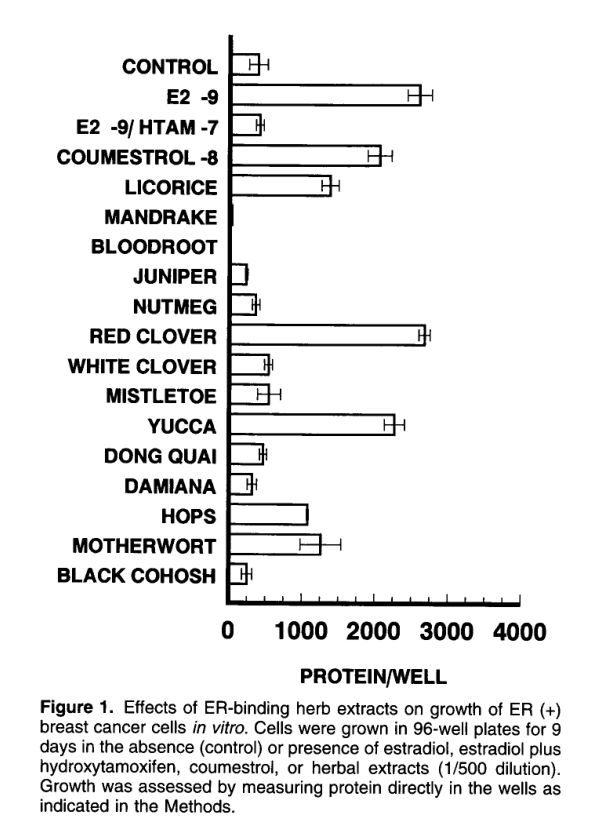
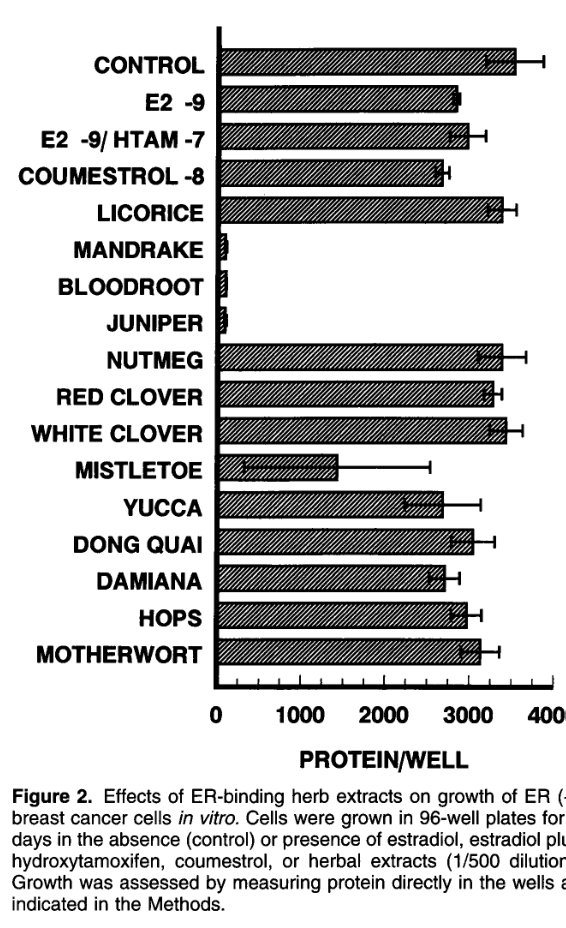
https://journals.sagepub.com/doi/abs/10.3181/00379727-217-44247
-
Dates, olives and walnuts contain the highest amounts of the phytoprogestogen syringic acid.
-
@Mauritio said in Random, interesting studies:
3,8-Dihydrodiligustilide
Strong phytoprogestogen.
https://en.m.wikipedia.org/wiki/3,8-DihydrodiligustilideIt has almost the same potency as progesterone (80% of it). And it has no estrogenic or anti-androgenic effects.
"EtOH extracts of the dried rhizome of L. chuanxiong demonstrated strongest
progestogenic activity, reaching 80% of that observed with progesterone (100 nM) and had an EC50 of 8 lg/ml (Fig. 1b). The bioactivity of L. chuanxiong extract was spe-
cific to the PR, and the extract was at least 200-fold less active on other related members of the steroid receptor family like androgen, estrogen and glucocorticoid receptors."The plant Ligusticum sinense chuanxiong from which it is extracted is traditionally used to treat uterus issues. It also has been studied to treat strokes and Parkinson's.
In this review they look at the anti inflammatory effect of it.
-
@Mauritio said in Random, interesting studies:
@Mauritio said in Random, interesting studies:
3,8-Dihydrodiligustilide
Strong phytoprogestogen.
https://en.m.wikipedia.org/wiki/3,8-DihydrodiligustilideIt has almost the same potency as progesterone (80% of it). And it has no estrogenic or anti-androgenic effects.
"EtOH extracts of the dried rhizome of L. chuanxiong demonstrated strongest
progestogenic activity, reaching 80% of that observed with progesterone (100 nM) and had an EC50 of 8 lg/ml (Fig. 1b). The bioactivity of L. chuanxiong extract was spe-
cific to the PR, and the extract was at least 200-fold less active on other related members of the steroid receptor family like androgen, estrogen and glucocorticoid receptors."The plant Ligusticum sinense chuanxiong from which it is extracted is traditionally used to treat uterus issues. It also has been studied to treat strokes and Parkinson's.
In this review they look at the anti inflammatory effect of it.
HED about 20g of the extract.
"Effect-time studies indicate that injection of MPA and L. chuanxiong extract raised area-under-curve of progestogenic activity in sera by 8.2-fold (p<0.001) and 4.5-fold (p<0.01) respectively, compared to sera from rats administered vehicle only. Administration of MPA and L. chuanxiong extract by the oral route resulted in a 5.4 (p<0.001) and 2.3-fold (p=0.07) increase respectively. Our data suggest that PR-responsive reporter gene bioassays can measure bioavailability of compounds, known and unknown, of complex botanicals for hormone replacement therapy. L. chuanxiong extracts exert progestogenic activity in vivo, and may have utility for progesterone-replacement therapy."https://pubmed.ncbi.nlm.nih.gov/16650443/
good review on it
https://www.tandfonline.com/doi/full/10.3109/13880209.2011.576346#d1e665HED = 850mg of the extract.
L. Chuanxiong completely prevented weight gain on a high fat diet. It increases antioxidants and cholesterol conversion into bile acids. Genes related to steroid biosynthesis were also upregulated so I guess that was another way it lowered cholesterol.
https://iadns.onlinelibrary.wiley.com/doi/full/10.1002/fft2.249Protective Effect of SFE-CO2 of Ligusticum chuanxiong Hort Against d-Galactose-Induced Injury in the Mouse Liver and Kidney
https://pubmed.ncbi.nlm.nih.gov/28056664/Chuanxiong Rhizoma extracts prevent cholestatic liver injury by targeting H3K9ac-mediated
https://pubmed.ncbi.nlm.nih.gov/37777319/Chuanxiong Rhizoma extracts prevent liver fibrosis via targeting CTCF-c-MYC-H19 pathway
https://pubmed.ncbi.nlm.nih.gov/38375042/ -
"PO [Peppermint oil ]significantly promoted bile and bile acid secretion in rats. It also increased bile acid efflux and decreased cholesterol levels (P < 0.01) in bile. In HepG2 cells the mRNA levels of CYP7A1 and FXR were significantly upregulated after treatment with PO."
https://onlinelibrary.wiley.com/doi/full/10.1111/j.1751-2980.2011.00513.x?utm_source=chatgpt.comMenthol + Menthone seem to have a dopaminergic effect
https://pubmed.ncbi.nlm.nih.gov/18718482-/
https://pubmed.ncbi.nlm.nih.gov/12686756/Menthol has some overlapping effects with progesterone as per this study
https://pubmed.ncbi.nlm.nih.gov/13819868/
It also acts as an anaesthetic like progesterone
https://pubmed.ncbi.nlm.nih.gov/11301871/Mode of action of peppermint oil and (-)-menthol with respect to 5-HT3 receptor
https://pubmed.ncbi.nlm.nih.gov/21077259/"...menthol acts as a noncompetitive antagonist of the 5-HT3 receptor..."
https://pubmed.ncbi.nlm.nih.gov/23965380/Menthol decreased milk production ,which hints at an anti prolactin effect and it inhibits mTOR.
https://pubmed.ncbi.nlm.nih.gov/33188562/Anti-leukemic effect of menthol, a peppermint compound, on induction of apoptosis and autophagy
https://pubmed.ncbi.nlm.nih.gov/36923503/I'd say given these studies, it's worth to try peppermint oil, which can consist of up to 80% menthol + Menthone.
-
@Mauritio Menthol, Camphor, Menthone and Eucalyptus, all are terpenoids known for their "cooling" effect, and are completely saturated- Camphor and Eucalyptus are even saturated cages, similar to Adamantane. Very interesting to me.
I would love to see if their is some overlap in their origin, structure or effects -
@alfredoolivas yeah very interesting!
Look at the progesterone like effect of the studies I just edited in.
If they are indeed saturated molecules that makes an estrogenic effect even less likely .Btw trump just brought back menthol cigarettes , so that's good timing

-
@Mauritio Peppermint oil is 30-50% menthol, 15-30% menthone and 5-10% eucalyptol. So peppermint oil could be a vehicle to deliver these substances.
-
@alfredoolivas yes. I'm just not sure about potential estrogenic or anti DHT effects. But I haven't seen anything conving, that would stop me from consuming it infrequently .
-
I purposefully stay away from peppermint.
-
@DavidPS yeah that is the most convincing study i've seen so far the dosage also wasn't excessively high
-
@Mauritio Well progesterone does the same; inhibits LH and FSH, and is therefore anti-androgenic. Unless peppermint oil is estrogenic, it may be a good proxy for progesterone.
-
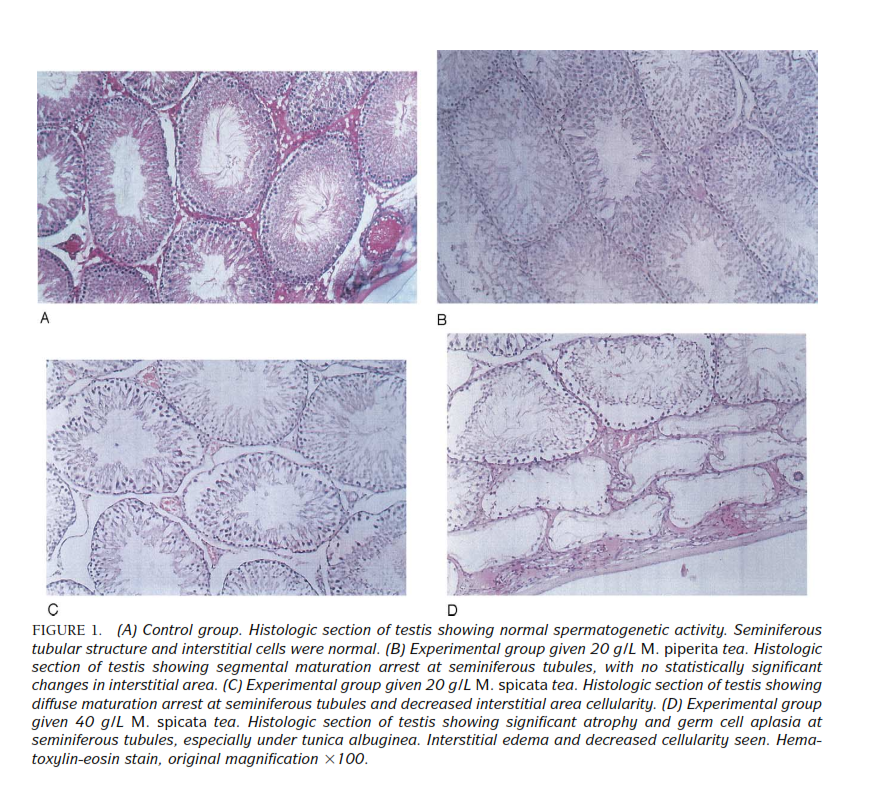
-
@alfredoolivas said in Random, interesting studies:
@Mauritio Well progesterone does the same; inhibits LH and FSH, and is therefore anti-androgenic. Unless peppermint oil is estrogenic, it may be a good proxy for progesterone.
Peppermint actually increased LH /FSH, unlike Progesterone.
I want to mention that the amount of menthol you get from tea is about ten times less than you get from the essential oil. and menthol seems to be the deciding metabolic factor here.
menthol actually has antiprolactin effects as i posted above so i'm not sure if anti - testosterone effects would be seen with the essential oil which is mostly Menthol.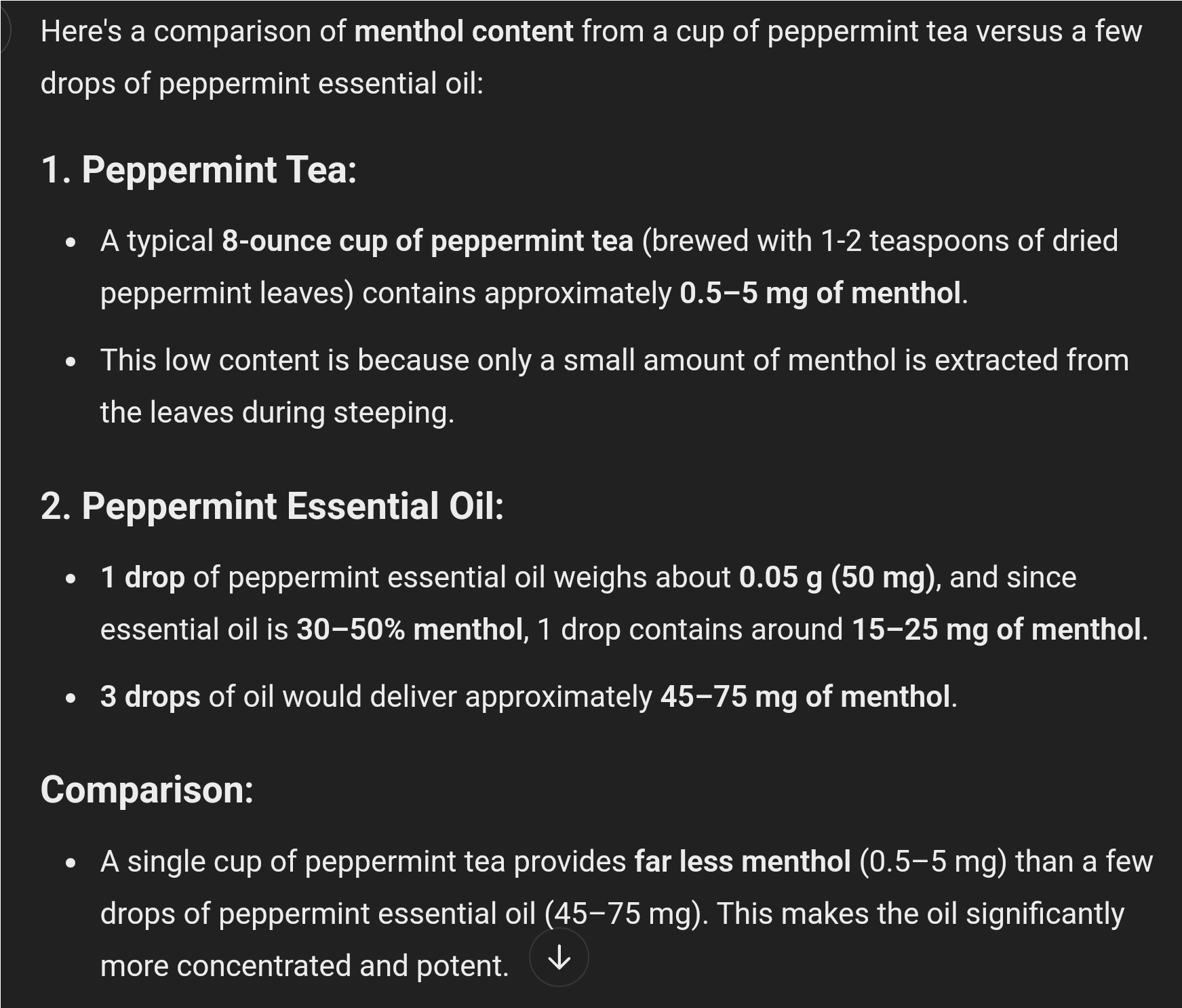
-
This post is deleted! -
@DavidPS high amounts 40mg/kg peppermint caused white matter dmg vs 10mg/kg which didnt show it for this dmg , rats https://www.sciencedirect.com/science/article/abs/pii/0378427483901212
But the menthol has some liver toxicity at dopamine doses i think, shows liver protection caused by other things but can cause liver changes https://doi.org/10.1016/0378-4274(83)90120-0
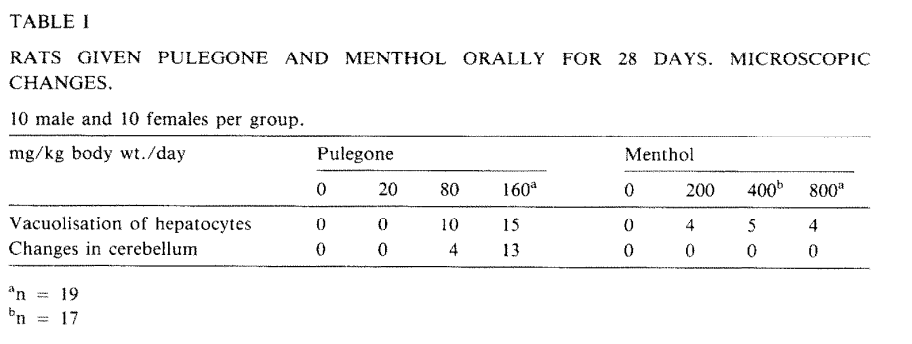
when i tried menthol for the dopamine & temp effect i tried it through the skin , noticed some liver pain after a bit ~1g. which i never get otherwise
-
@cs3000 - thanks for the additional information.
-
@cs3000 thanks interesting . It seems save enough for a short duration or infrequent use.
I also noticed some dopaminergic benefits from nebulizing peppermint oil . I guess the dose there should be very low.The liver pain might also come from it decreasing peristalsis and thus bile not being excreted fast enough and reabsorbed...